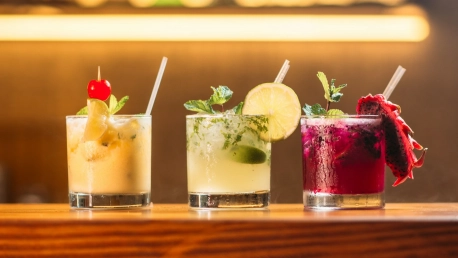In the competitive beverage sector, startups are increasingly adopting small batch manufacturing as it offers a strategic edge. This method not only minimizes resource expenditure but also provides a versatile stage to pilot novel concepts and gauge consumer responses. Small batch production is a smart investment for emerging brands, allowing them to infuse each product with unique attributes and thoughtfully build their narrative. Such attention to detail underscores a commitment to quality and authenticity that can resonate with customers. Startups can use this approach to carve out their niche in the market by responding quickly to trends and preferences, refining their offerings based on feedback, and building a loyal customer base interested in artisanal, limited-run products. This concentration on small-scale production fosters an environment where creativity and craftsmanship lead the way to establishing a successful brand presence in the beverage industry.
The Pilot Run Advantage
A Low-Risk Production Approach
Diving into the beverage market carries significant risks for new ventures, with threats ranging from equipment malfunctions to market rejection. A strategic first step for mitigating such risks is executing a pilot production run. This strategy involves manufacturing the beverage in limited quantities—a method that reduces financial risks while offering valuable insights into the production process and market expectations. By keeping initial production small, startups not only shield themselves from hefty losses but also retain the flexibility to respond swiftly to any unexpected challenges. This precautionary approach provides entrepreneurs with a chance to test the waters of the beverage industry, refining their product and strategy before scaling up. A pilot run, therefore, serves as a crucial bridge between the initial concept and large-scale manufacturing, balancing caution with ambition.
A Doorway to Professional Presentations
For startups, convincing investors and retailers of their product’s viability is a pivotal hurdle. Conducting a pilot run not only allows them to refine the beverage to near perfection but also yields a concrete sample indicative of the final product. When engaging with potential financiers or commercial partners, presenting a fully-realized, professionally packaged product can be incredibly persuasive. Producing a small batch of this finalized product can serve as a testament to the startup’s dedication to creating a high-quality offering that extends all the way from the taste and formulation to the branding and design. This step is crucial for making a lasting impression, proving that the startup stands behind its product with a strong commitment to quality in every aspect. Through this approach, a startup can establish credibility and trust, which are essential in the competitive beverage industry.
Market Feedback and Co-Packer Relations
Valuable Consumer Insights
In the beverage industry, testing a product in the real world is essential. Conducting a limited release of the product permits businesses to collect hands-on consumer feedback, which can be pivotal. Such direct market insights enable startups to see how the beverage is received—whether the taste hits the mark or if the packaging appeals. This early consumer data is vital; it assists in fine-tuning any aspect of the product that might not align with customer expectations. Acting on this feedback before mass production can make a significant difference. It ensures that any modifications necessary for the product’s enhancement are made, thus optimizing its appeal to the target audience. Ultimately, by prioritizing adjustments based on consumer reactions, beverage startups can significantly boost their prospects of success and differentiate their product in a densely populated market. This strategic approach to product development, through small-scale testing and refining, is what could steer a brand toward greater market achievement.
Co-Packer Approval and Scaling
Small batch production is a crucial step for startups aiming to impress both consumers and critical manufacturing partners like co-packers. These early production runs prove a product’s viability and scalability, offering a snapshot of its market potential. Startups that navigate small batch production gain a competitive edge and are better positioned to form strategic co-packer partnerships for growth.MyDrink Beverages, in collaboration with BevSource, expertly guides new beverage companies through small batch production. They offer valuable industry insights and a range of services, including a variety of packaging choices and thorough product testing. Startups that engage in small-scale bottling are making a savvy investment in their product’s future, minimizing initial risks, and laying a strong foundation for eventual large-scale success. This careful approach to product launch sets them on the path to long-term prosperity in the competitive beverage industry.









